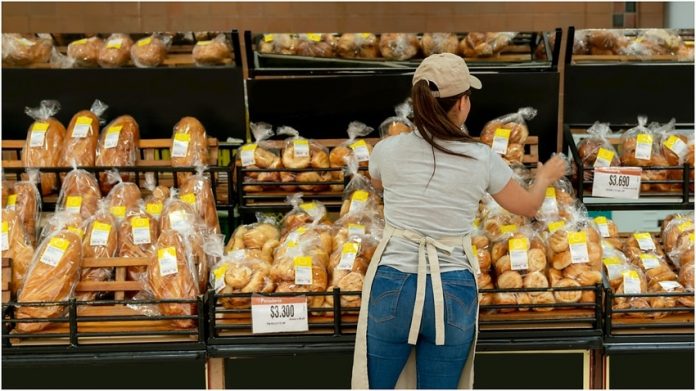Australia has experienced the biggest expansion of casual employment in the country’s history, according to new analysis that suggests the economic impact of the Covid-19 pandemic has been “starkly unequal”. The Australia Institute, which carried out the analysis, has argued the government’s planned industrial relations changes will only “reinforce the growing dominance of insecure work in the labour market”.
On Wednesday the progressive think tank also released the results of new polling suggesting “unprecedented” was the single most popular choice among surveyed Australians for a word to describe 2020. A third of those surveyed in the nationally representative sample of 1,018 Australians on 17 and 18 December nominated working from home as a change they wanted to keep next year.
The analysis by the institute’s Centre for Future Work says the labour market experienced unprecedented volatility in 2020 as a result of the pandemic and Australia’s first recession in nearly three decades. The early months of the pandemic “highlighted stark fissures in Australia’s labour market”, with casual workers losing employment eight times faster than those in permanent jobs.
The report points to an “encouraging” rebound in employment after May – replacing over 80% of the jobs lost in the initial downturn – but it says this turnaround has been dominated by insecure positions. It says casual jobs accounted for 60% of all waged jobs created since May, while part-time work accounted for nearly three-quarters of all new jobs.
Meanwhile “very insecure positions” – including in the gig economy – were responsible for the rebound in self-employment. “Casual employment grew by over 400,000 positions between May and November – an average of 2,200 new casual jobs per day,” the report says. “That is by far the biggest expansion of casual employment in Australia’s history. Claims that new hiring is being held back by legal ‘uncertainty’ related to recent casual work court decisions are not credible.”
The report also notes young people “suffered much worse job losses in the initial months of the pandemic”. While pre-pandemic employment levels have recovered for workers over 35, younger workers are still suffering significant job losses – a phenomenon that explains why the government introduced a new youth wage subsidy in the October budget.
The report says women suffered disproportionate job losses when the pandemic arrived, and that gender gap had yet to be closed. “Women’s employment, unemployment, underemployment and participation all remain significantly weaker than for men.”
Another fault line during the pandemic was whether people worked in offices. Professional, managerial and clerical staff were largely able to switch to working from home and suffered lower levels of job losses.
According to the Centre for Future Work, employment remains lower than before the pandemic in some other occupations, including community and personal services, sales workers and labourers. “These uneven occupational effects have exacerbated inequality: those who lost work, on average, earned less and experienced greater job insecurity before the pandemic,” it says.
“Some industries are still experiencing lower employment than before the pandemic hit, including hospitality, information and communications, and arts and recreation. “Job losses in manufacturing continue to worsen, despite the recovery in the rest of the economy after May – belying the government’s pledge to strengthen domestic manufacturing after the pandemic.”
The government introduced an industrial relations bill to parliament just before the Christmas break that would, among other things, create a right for casual employees to request to become permanent after 12 months. But the bill states that if a casual employee is misclassified and a court finds they are owed entitlements because they perform regular, permanent work, the casual loading already paid is subtracted from the employer’s liability. This retrospective change could wipe out claims worth up to $39bn. The Centre for Future Work says the government’s bill would liberalise casual work and allow permanent part-time workers to be treated like casuals. “These measures will accelerate the surge of insecure work – and ensure that the next economic shock will have even more unequal effects than this one did,” the report says.
The separate polling commissioned by the Australia Institute provides an insight into people’s perceptions of 2020. The 1,018 respondents were presented with 11 words or phrases and asked which best described the year just gone. The most popular choice (19%) was “unprecedented”, followed by “terrible” (14%), “tragic” (12%) and “exhausting” (12%). The respondents were also presented with a range of option of changes that they would keep from 2020 if possible. The most popular choices included less work travel (35%), increased funding for mental health and family violence services (33%) and working from home arrangements (32%).
The executive director of the Australia Institute, Ben Oquist, said: “Tellingly, last on Australians’ wish-list for the new year is the government’s much-vaunted ‘gas-led recovery’ which only 6% of Australians selected as something they’d like to keep from 2020.”
The Guardian




















